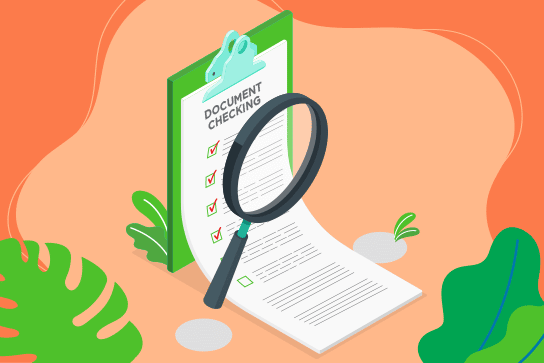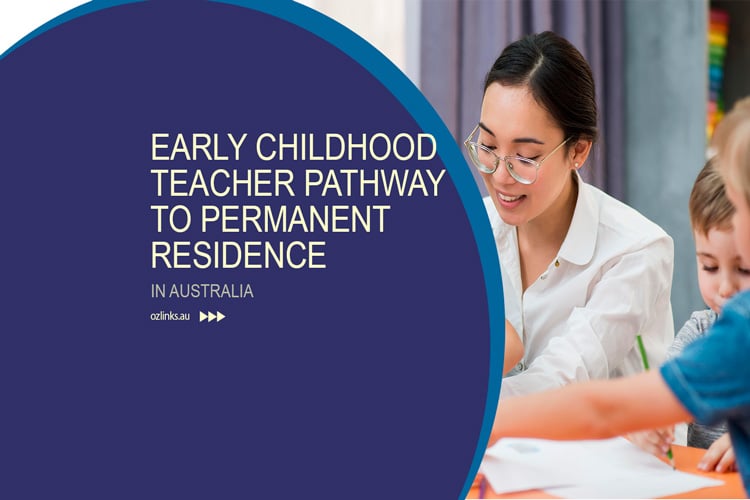LISTEN AUDIO
Last Updated on April 3, 2025 by Ozlinks Education
About Early Childhood Teacher
In a society where the value of formative childhood experiences cannot be overstated, the decision to work with young children as a teacher entails a great deal of responsibility. This is a really rewarding career since it allows you to have a direct impact on the development of young minds, to foster a love of learning, and to be a part of the journey that young people take as they mature.
Early childhood educators in Australia have a significant impact on children’s life, not just via formal instruction but also through their actions and attitudes. They teach by example, serving as role models for children to look up to learn from, and aspire to be like. Quality early education and care leads to superior long-term health, education, and employment results. Quality education and care lay the groundwork for lifelong learning and development.
How do I migrate to Australia as an early childhood teacher?
Australia has always been a popular destination for skilled early childhood teachers seeking to advance their careers and establish themselves in a diverse society. Australia welcomes qualified early childhood (pre-primary school) teachers to migrate to Australia as there aren’t enough local early childhood teachers or preschool teachers to fill the gaps in the education job market.
Early Childhood (Pre-primary School) Teacher (ANZSCO code: 241111) is currently on the Medium and Long-term Strategic Skills List (MLTSSL). Early childhood education is a fairly popular occupation that allows access to a range of visas that may lead to permanent residency. To relocate to Australia to work and build a permanent home, qualified pre-primary school or early childhood teachers should be aware of the numerous visa alternatives that may serve as a stepping stone to permanent residency (PR). In this article, Ozlinks Education will go over the procedures and steps needed to obtain permanent residency (PR).
Are early childhood teachers in high demand in Australia?
According to the National Skills Commission’s (NSC) 2022 Skills Priority List report, early childhood teachers are classified as a shortage across Australia’s states and territories, as illustrated in the table below:
Explanation: Shortages (S): Shortages exist when employers are unable to fill job vacancies
|
ANZSCO |
Occupation |
NSW |
VIC |
QLD |
SA |
WA |
TAS |
NT |
|
Early Childhood (Pre-primary School) Teacher |
S |
S |
S |
S |
S |
S |
S |
ANZSCO Skill Level
An early childhood (pre-primary school) teacher must have an ANZSCO Skill Level 1, which is comparable to a bachelor’s degree or higher qualification.
Completion of a minimum of four years full-time (or part-time equivalent) higher education (university) level study that results in qualification/s. This must include a relevant initial teacher education qualification and can include other qualifications.
To understand more about the AQF level, visit AQF level page, and ANZSCO Skill Level.
What types of visas are available for early childhood teacher?
The occupation of early childhood (pre-primary school) teacher is currently on the Medium and Long-term Strategic Skills List (MLTSSL), which gives them access to a variety of visas that can lead to permanent residency in Australia. If you are a skilled early childhood (pre-primary school) teacher, the following visas may be available to you:
- Temporary Skilled Shortage (TSS) Subclass 482
- Employer Nomination Scheme Subclass 186
- Skilled Employer Sponsored Regional Visa 494
- Skilled Work Regional Subclass 491
- Skilled Nominated Subclass 190
- Skilled Independent Subclass 189
Check out our visa points calculator to see if you are eligible for a skilled visa. If you need help deciding what to do next, our migration experts are here to help.
Does an early childhood teacher need to do a skills assessment?
Early childhood (pre-primary school) teachers must complete a skills evaluation. The minimum skill assessment standards required you to meet both English language proficiency and formal qualifications in education, which included the following:
1-Qualifications Criteria
Completion of a minimum of four years full-time (or part-time equivalent) higher education (university) level study that results in qualification/s. This must include a relevant initial teacher education qualification and can include other qualifications.
Initial teacher education qualification requirement
The study must include an initial teacher education qualification comparable to the educational level of an Australian bachelor’s degree (Australian Qualifications Framework Level 7) or higher, which includes:
- at least one year full-time (or part-time equivalent) higher education (university) level study of Early Childhood (Pre-primary School) Teacher initial teacher education
- completion of at least 45 days of supervised teaching practice with students across the Birth to 8 years age range in education programs prior to and in the early years of primary school*.
Other higher education qualifications requirement
Other higher education qualification/s contributing to the four years of study must be comparable to the educational level of an Australian Advanced Diploma/associate degree (Australian Qualifications Framework Level 6) or higher.
2-English Language Proficiency Criteria
The English language proficiency criterion is an academic version of the International English Language Testing System (IELTS) Test Report Form (TRF) demonstrates that you have accomplished the following:
- reading and writing score of at least 7.0 and
- a speaking and listening score of at least 8.0.
The IELTS test scores must appear on a single IELTS (TRF) and be the result of a test taken during the 24-month period preceding application submission.
Visit the English Language page to learn more about English for Migrants.
English Language Test Exemption
You are exempt from providing an English language proficiency test if you meet the below condition.
Completion of at least four full years of study (or part-time equivalent) in higher education (university) in Australia, Canada, the Republic of Ireland, New Zealand, the United Kingdom, or the United States of America resulting in qualifications comparable to the educational level of an Australian bachelor’s degree (Australian Qualifications Framework Level 7) or higher. This study must include a recognised initial teacher education qualification.
Can an early childhood teacher apply for PR in Australia?
The occupation ANZSCO: 241111 Early childhood (pre-primary school) teacher is listed on the Medium and Long-Term Strategic Skills List (MLTSSL). An early childhood teacher who works for an approved sponsor on a working visa 482 may be eligible for permanent residency via the Employer Nomination Scheme (ENS) visa (subclass 186).
General Skilled Migration Visas
To be eligible for General Skilled Migration Visas, early childhood teachers need to achieve the minimum point requirement established by the Department of Home Affairs (see legislative instrument LIN 19/210). Early childhood educators who have the ability to potentially get permanent residency through one of the following visas:
Check out our visa points calculator to see if you are eligible for a General Skilled Migration Visas. If you need help deciding what to do next, our migration experts are here to help.
What does an early childhood teacher do?
An early childhood teacher plans, organises and conducts activities to help pre-primary school students to develop a wide variety of skills including speech, reading, writing, motor skills and social interaction. Registration or licensing is required.
Alternative Title:
Kindergarten Teacher
Their job involves:
- planning and structuring learning in both indoor and outdoor environments using a variety of materials and equipment to facilitate students’ development.
- providing a variety of experiences and activities to develop motor skills, cooperative social skills, confidence and understanding.
- promoting language development through storytelling, role play, songs, rhymes and informal discussions held individually and within groups.
- observing students to evaluate progress and to detect signs of ill health, emotional disturbance and other disabilities.
- observing nutritional health, welfare and safety needs of students and identifying factors which may impede students’ progress.
- discussing students’ progress with parents.
- attending parent interviews, and staff and committee meetings.
- participating in community and family support programs as appropriate.
- supervising student teachers on placement.
How do I find a job as an early childhood teacher in Australia?
If you are a highly skilled early childhood teacher with more than 5 years of experience looking for a sponsor job in Australia, we have employers who are looking for skilled migrants and are prepared to sponsor you to work as an early childhood teacher. Visit the job placement page to fill out an application online.
Why do I need help with skill assessment?
Each assessing authority has its own set of skill assessment criteria, procedures, and timelines. The criterion is carried out by an assessing authority and pertains to your chosen ANZSCO occupational from the Skilled Occupation List (SOL), which will be assessed by the assessing authority in compliance with relevant professional standards.
Ozlinks Education is an agency that assists individual applicants in understanding the skill assessment requirements. We are competent in finding the right assessing authority and its requirements according to your chosen ANZSCO profession. Our experience in document checking assures that you have met the paperwork requirements for the skills assessment application criterion. This approach will allow us to present your application for the best possible outcome for your occupation, ANZSCO 241111: Early Childhood Teacher.
Skills Assessment AssistanceDisclaimer:
This section does not intend to provide immigration assistance pursuant to section 276 of Migration Act (Cth) 1994 as described in the Migration laws. It is based on public guidelines available at Department of Home Affairs’ Website. It is your responsibility to verify accuracy and status of provided information with your Registered Migration Agent (RMA) who is bound by the MARA code of conduct before submitting any visa applications.
Although every effort has been made to provide complete and accurate information, Ozlinks Education and Career Services makes no warranties, express or implied, or representations as to the accuracy of content under ANZSCO Occupations sections.




